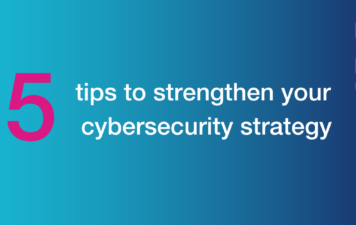This past year has seen multiple global attacks on businesses, political conflicts resulting in cyber warfare, and increasingly sophisticated online scams being used in cyberspace.
With the end of the year approaching and many people embracing the festive season, ever adaptable cybercriminals will also be doing the same.
With huge events such as Black Friday and Cyber Monday, right the way through to post holiday sales seeing online shopping figures hit their annual peak, this season is also a chance for new malicious tactics we have seen throughout the year to make an appearance.
Airbus Protect’s recommendations for staying safe in the fast paced cyber domain during the holiday season.
Imposter Scams
Although imposter scams can be executed in multiple ways, usually it follows the same process: an attacker impersonates a trusted person or organisation to persuade a user to send them something of monetary value.
These types of scams can take on new themes around the holidays from impersonating legitimate charity organisations, family members in need of extra financial support, or romance scams exploiting the time of year when people can feel more vulnerable. Although these types of scams are not new, the huge increase seen in Artificial Intelligence (AI) technology and applications such as ChatGPT this year has resulted in much more convincing attempts.
Seasonal Offers
Whether it be for last minute gift purchasing, post holiday bargains, or looking for seasonal work, digital offers can be received by us all multiple times a day over the festive period. These offers can take on constantly changing forms such as adverts on social media, text messages about renewable subscriptions, or an e-gift email offer.
Some of the new tactics used in phishing emails this year such as ‘quishing’ could also play a part in this year’s wave of seasonal offer scams. Quishing is a form of phishing involving the manipulation of users through malicious QR codes. When scanned, QR codes commonly direct users to web pages, but they can also trigger actions such as facilitating digital payments. An increase in the variety of techniques used in phishing attacks make it extremely difficult for users and security defences to determine what is or isn’t legitimate.
Want to know more about phishing? Check out our blog article “How to protect against phishing”!
Refund & Fake Delivery Scams
Some of the two more popular themes to be aware of for online scams over the holidays revolve around package deliveries and refunds. Cyber criminals can take on the persona of a trusted organisation informing users that they are due a refund, but in order to receive your refund you are required to share your personal or banking information.
Fake delivery phishing attempts are also extremely popular this year, with logistics companies being impersonated and enticing users to reveal personal information for reasons such as order confirmations or delivery rescheduling.
These types of malicious campaigns can also be adapted this year with the use of One-Time Password (OTP) bots used to further convince a user that they are communicating with a legitimate company. OTP bots are automated programmes used to extract one-time authentication passwords from users by tricking people into divulging an authentication code that has been sent by email, SMS, or even an authentication app. Once authenticated, an attacker could perform further unauthorised actions from an Multi-Factor Authentication (MFA) protected account.
Ransomware-as-a-Service
Unfortunately, it is not just personal information that is at risk. Ransomware attacks against businesses also increase over this time of year, this is a following effect to the amount of additional personal and financial information being collected through our online purchases. This creates more opportunities for cyber criminals to pivot between our personal and corporate data.
Additionally, this year has seen an increased use of incredibly sophisticated deep fakes which could make initial access to business networks much more likely by tricking an employee. Combining such technology with already seen tactics, such as spear-phishing campaigns (targeted attempts at stealing information), can make for much more convincing impersonations of executives or other managerial individuals to deceive employees into revealing sensitive business information or gaining unauthorised access to an organisation’s network.
Conclusion
Although this time of year is a time where most people will be relaxing and taking some time off, this is not the same for cyber criminals. It is important to remain vigilant when completing online purchases, particularly those last minute gift buys. Fortunately, good cyber security practices will help users stay safe when embracing the holidays. Some of these practices include:
- Double check the sender’s information before sharing any information or money.
- Rather than buying a product through an advert, find another route to the trusted company online to verify if it’s offering the same item and price advertised.
- Use multi-factor authentication on online accounts where possible.
- Make yourself familiar with some of the ways you can report scams to regulators and report anything you deem suspicious.
- Regularly review the activity within your accounts to spot unusual activity and change passwords on a regular basis.
- Practise good password management with differing and strong passwords.
As the end of the year approaches it is important for users and organisations to prepare for some of the possible evolving threats that could be seen in the cyber landscape for the future. Threats surrounding deep fakes, Artificial Intelligence, Cloud services, and supply chain attacks are likely to be seen in the new cyber year.
 Cybersecurity
Cybersecurity 



